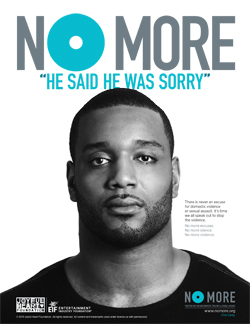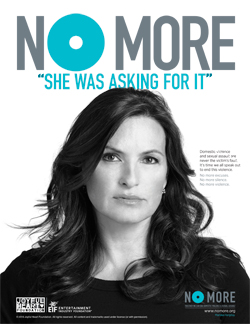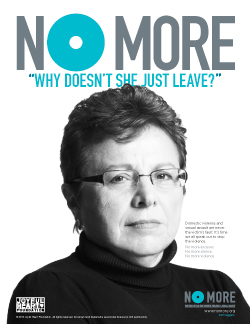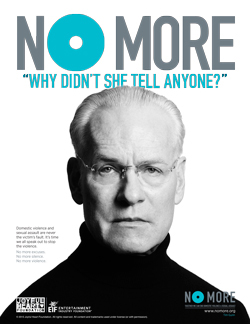You can leave this site quickly.
Learn more about Internet safety.
How and Why We Need to Support Survivors: #TheEmptyChair and Ray Rice

This week we are once again inundated with news coverage about high-profile sexual assault and domestic violence cases. First came the New York magazine cover story featuring 35 women’s stories about being sexually assaulted by Bill Cosby. Then came more news about former Baltimore Ravens running back Ray Rice, who is looking to rejoin an NFL team this coming season.
In these situations, we find ourselves searching for how to respond, language to talk about these crimes, how to understand this violence, to express our feelings and for what to do next. As I have said so many times before, it matters deeply how we respond to these issues. We all have a role to play in supporting survivors and creating a society that doesn’t tolerate these crimes.
The empty chair on the cover of New York magazine represents the hundreds of thousands of survivors who can never share their stories with anyone—or who don’t want to. The empty chair reminds us all how far we have to go before survivors are believed and supported.
In our mutual work to end domestic violence and sexual assault, it’s crucial that the starting point for our words and actions be those we work in service of: survivors.
Our partners at A CALL TO MEN were part of the Ray Rice story. Along with other organizations working to address this violence, we were deeply concerned about their endorsement of Rice’s second chance at his football career. Today, A CALL TO MEN issued a statement acknowledging the negative impact their endorsement had on survivors and taking full responsibility for their statements and actions. I am moved by the courage they have shown in apologizing for their actions holding themselves accountable. In our mutual work to end domestic violence and sexual assault, it’s crucial that the starting point for our words and actions be those we work in service of: survivors.
I am always mindful that we have much further to go to truly drive this discussion in the right direction and to examine how we—in our individual interactions, our criminal justice system, the institutions we shape, our communities—respond to violence and hold perpetrators accountable. Every one of us has an important role in this conversation and in ending this violence. Working together, we can—and will—get there.
You can start today by supporting survivors and not blaming them. Ever. Helping a survivor can be as simple as bearing witness to someone’s story, to believing them without judgment. It also takes the form of being an active, engaged community member. Let’s help dispel the victim-blaming myths— “she was asking for it" or “it’s her fault”—and let’s stop asking the questions that excuse a perpetrator’s actions—“what did she expect would happen?” or “why didn’t she just leave?” One especially important take-away from this week: sexual and domestic violence is not a mistake. Violence against women is a deliberate choice rooted in power, control and gender oppression.
 |  |  |  |
As we take in events, information and opinions from the media, we realize that this takes a toll on each of us in a very personal way. While we know that each person has knowledge and understanding of how to best care for themselves through this process, I would like to encourage people to prioritize this in our busy lives. Simple things like limiting your exposure to repeated images and taking the time to nurture yourself can have profound effects in creating a space that is healthy, thoughtful and embraces everyone as we heal and grow together as a community.




Your Voices